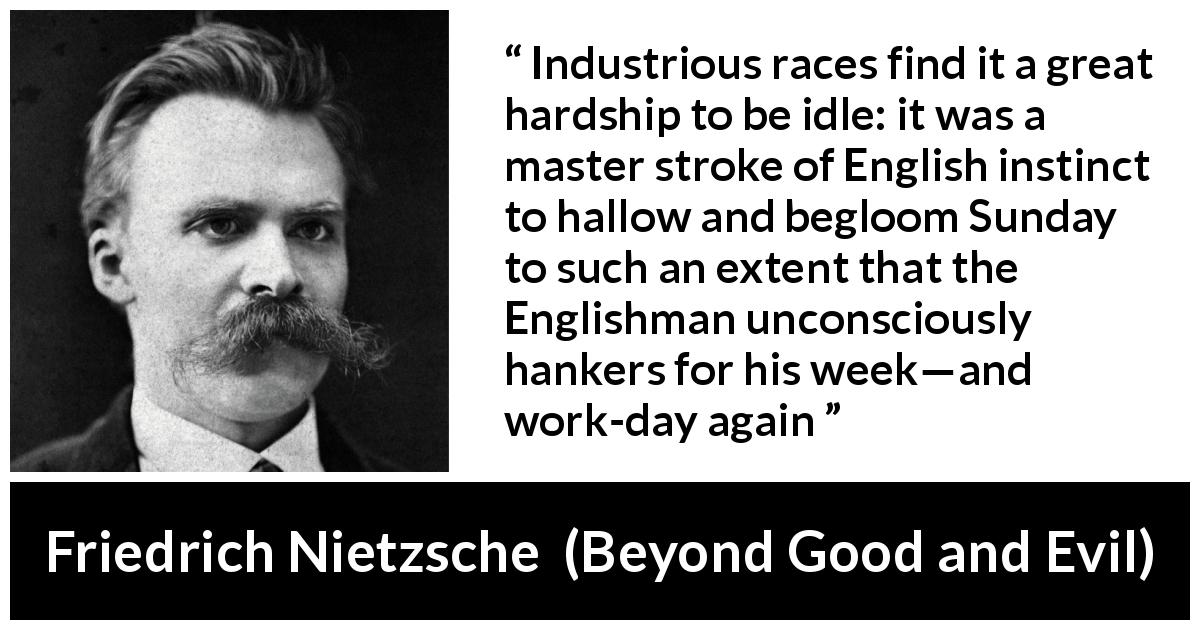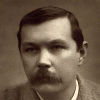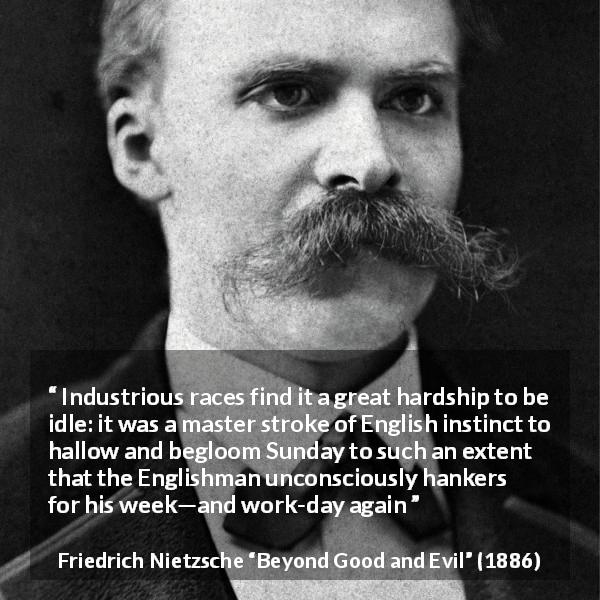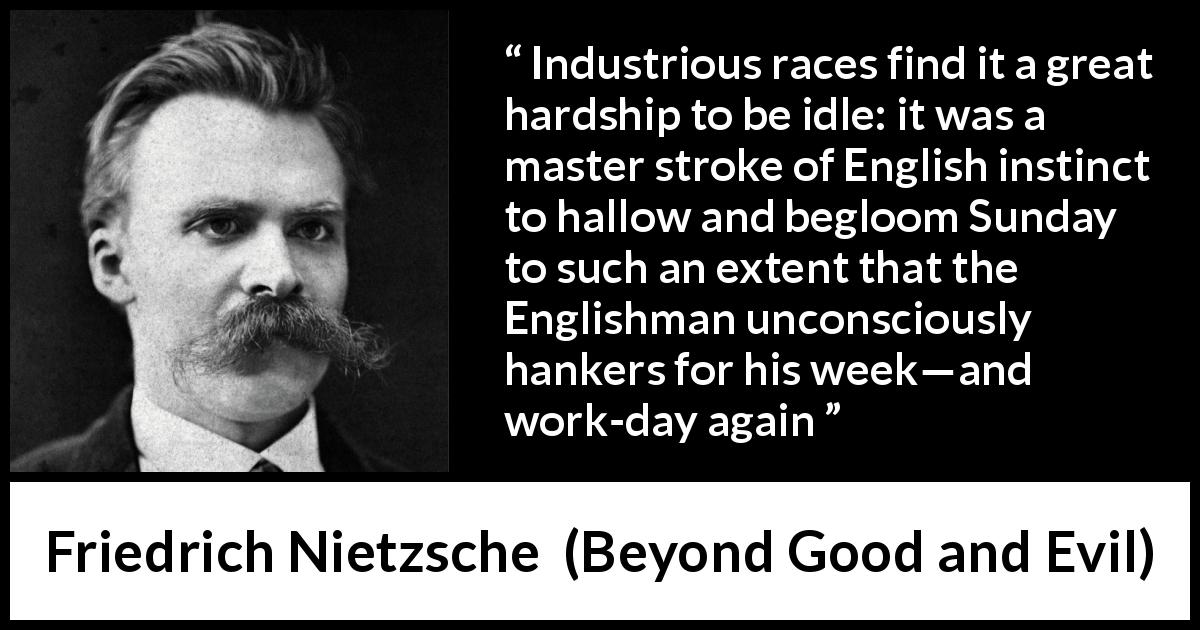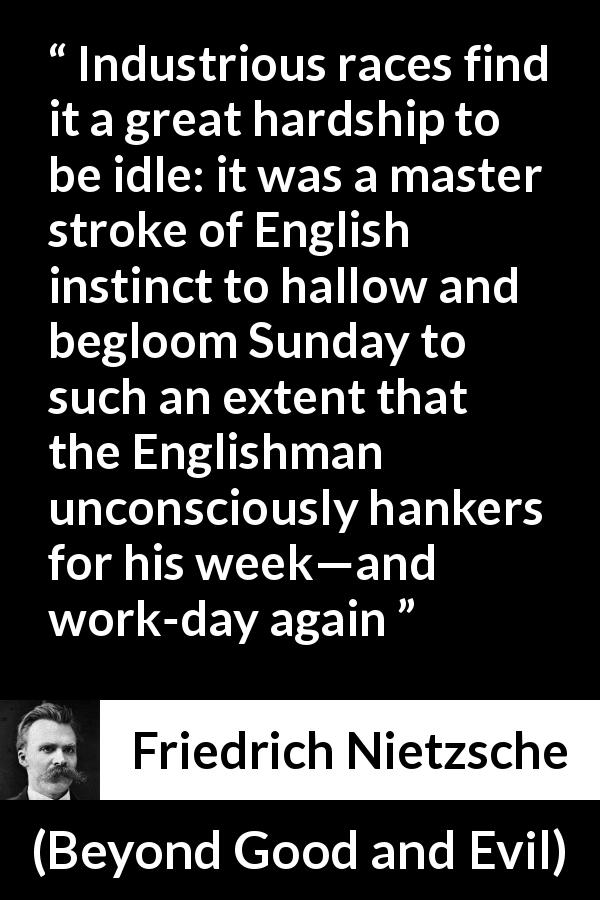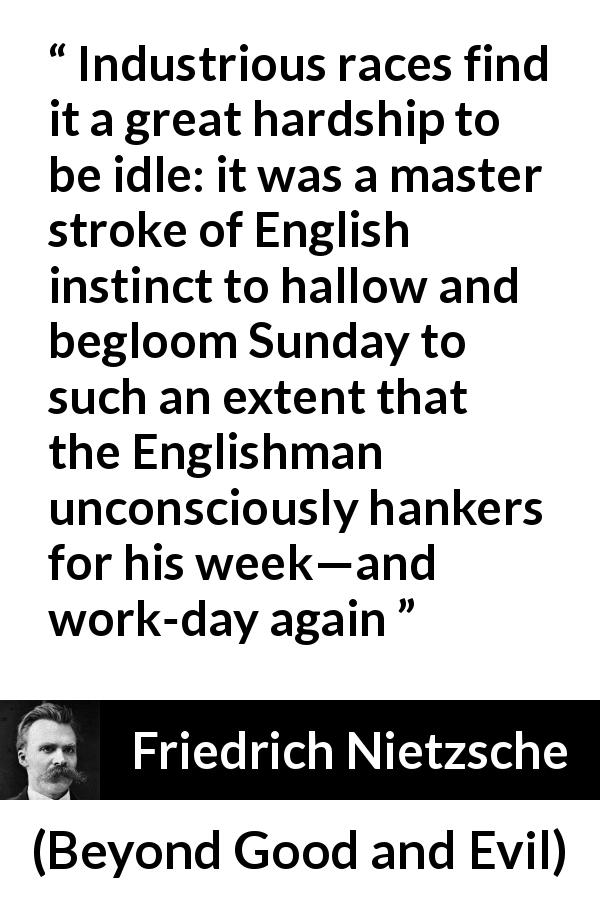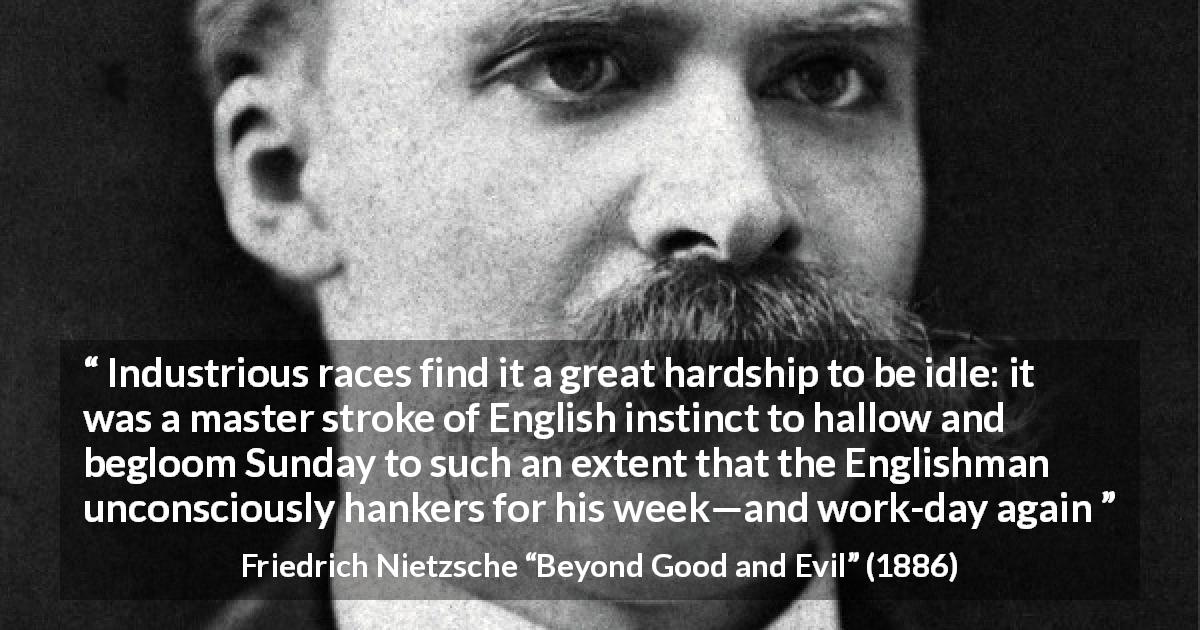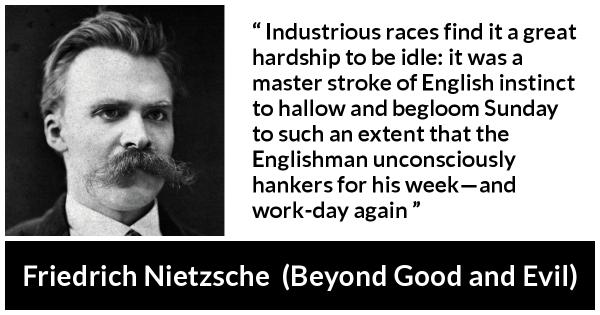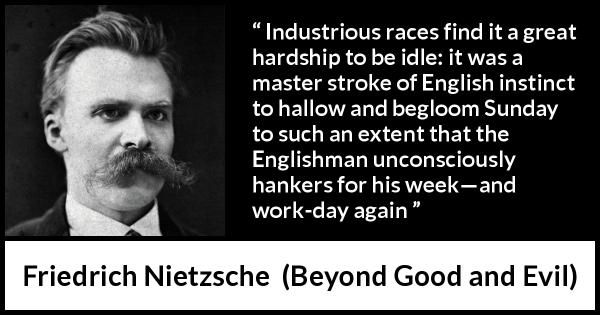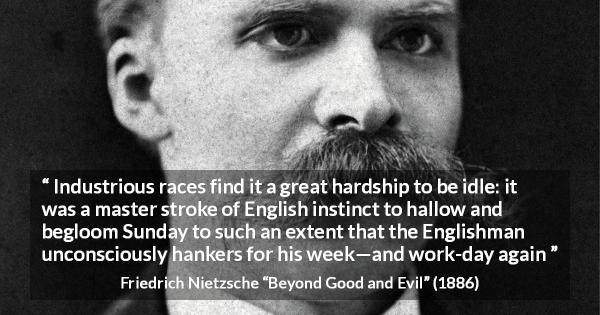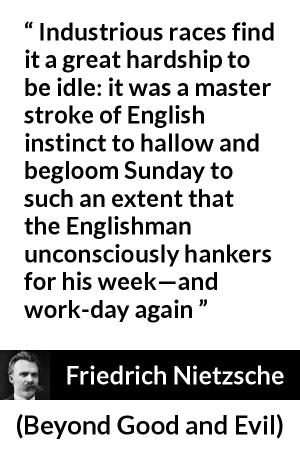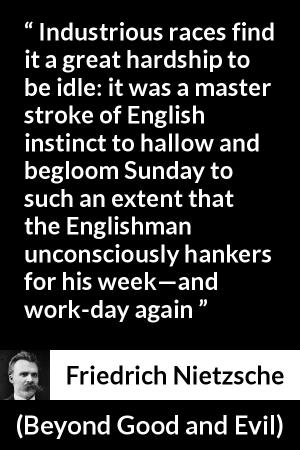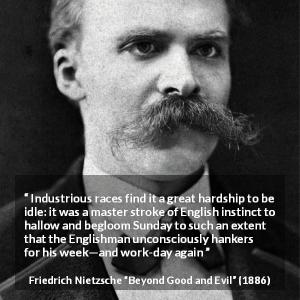“ Industrious races find it a great hardship to be idle: it was a master stroke of English instinct to hallow and begloom Sunday to such an extent that the Englishman unconsciously hankers for his week—and work-day again ”
Friedrich Nietzsche, Beyond Good and Evil (1886). copy citation
| Author | Friedrich Nietzsche |
|---|---|
| Source | Beyond Good and Evil |
| Topic | work idleness |
| Date | 1886 |
| Language | English |
| Reference | |
| Note | Translated by Helen Zimmern |
| Weblink | http://www.gutenberg.org/files/4363/4363-h/4363-h.htm |
Context
“"Thou must obey some one, and for a long time; OTHERWISE thou wilt come to grief, and lose all respect for thyself"—this seems to me to be the moral imperative of nature, which is certainly neither "categorical," as old Kant wished (consequently the "otherwise"), nor does it address itself to the individual (what does nature care for the individual!) , but to nations, races, ages, and ranks; above all, however, to the animal "man" generally, to MANKIND.
189. Industrious races find it a great hardship to be idle: it was a master stroke of ENGLISH instinct to hallow and begloom Sunday to such an extent that the Englishman unconsciously hankers for his week—and work-day again:—as a kind of cleverly devised, cleverly intercalated FAST, such as is also frequently found in the ancient world (although, as is appropriate in southern nations, not precisely with respect to work). Many kinds of fasts are necessary; and wherever powerful influences and habits prevail, legislators have to see that intercalary days are appointed, on which such impulses are fettered, and learn to hunger anew.” source
189. Industrious races find it a great hardship to be idle: it was a master stroke of ENGLISH instinct to hallow and begloom Sunday to such an extent that the Englishman unconsciously hankers for his week—and work-day again:—as a kind of cleverly devised, cleverly intercalated FAST, such as is also frequently found in the ancient world (although, as is appropriate in southern nations, not precisely with respect to work). Many kinds of fasts are necessary; and wherever powerful influences and habits prevail, legislators have to see that intercalary days are appointed, on which such impulses are fettered, and learn to hunger anew.” source
